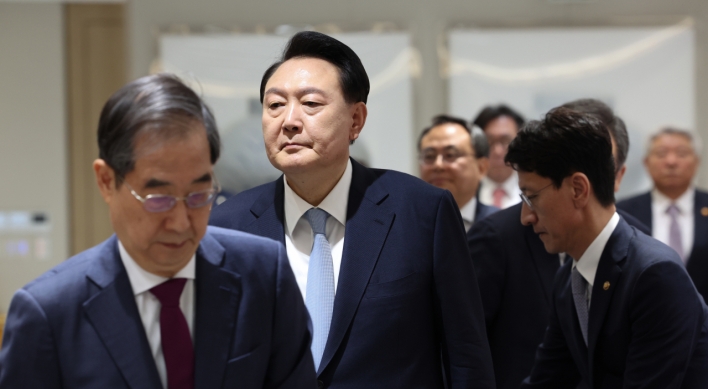 In all the “Best of the Decade” lists I’ve been seeing, one topic has been neglected: orators. I’d like to remedy that, noting that I am not necessarily endorsing anything anyone says. “Best” in this context means the most powerful and influential public speaker, not having the most salutary effect on the world.
In all the “Best of the Decade” lists I’ve been seeing, one topic has been neglected: orators. I’d like to remedy that, noting that I am not necessarily endorsing anything anyone says. “Best” in this context means the most powerful and influential public speaker, not having the most salutary effect on the world.My choice for second place is Greta Thunberg. In little more than a year, Thunberg has moved from being an unheard-of 16-year-old Swedish girl to Time’s Person of the Year. While she is now a social media phenomenon, her initial ascent was driven by her public speaking. Communication is quite simply what she does.
As a public speaker, Thunberg is memorable. The unusual prosody of autistic voices is sometimes considered a disadvantage, but she has turned her voice and her extreme directness into an unforgettably bracing style. She communicates urgency and moral seriousness on climate change at a time when the world is not taking decisive action. She mixes anger and condemnation with the look of a quite innocent young girl. Her Swedish version of a British accent is immediately recognizable. There is usually no one else in the room who looks or acts like her.
Her core speech she can give in about five minutes, perfect for an age of limited attention spans. She speaks in short, clipped phrases, each one perfect word-for-word. It is easy to excerpt discrete sentences on social media or on television.
As for memorable phrases, how about these: “I don’t want your hope.” “Did you hear what I just said?” “I want you to panic.” And of course: “How dare you? You have stolen my dreams and my childhood with your empty words.”
These days, you can simply say the name “Greta” in many parts of the world, and people will know who you are referring to. As a public speaker, however, there is someone even better: President Donald Trump.
Commonly called inarticulate or even incoherent, Trump has an oratorical genius those descriptions miss. He was elected president, after all, not on the basis of his policy experience but because his message resonated with scores of millions of Americans.
Trump is a highly repetitive public speaker. Yet it is a core principle of marketing that repetition captures the attention of the listener and makes a message stick. Due to his many years of experience on TV, Trump also has near-perfect timing and knows how to modulate the cadence of his voice to stress his takeaway messages. For better or worse, he is mesmerizing.
Most of all, Trump is the master of coining the memorable (if often highly objectionable) phrase. It is Trump who made “fake news” a popular term. An ability to inject new words or phrases into the language is one of the hallmarks of a truly effective speaker.
Trump is also devastating in coining short, easy-to-remember nicknames that capture the political weaknesses of his opponents. “Little Marco,” “Crooked Hillary,” “Pocahontas” and “Sleepy Joe” all have entered the political lexicon, no matter how false or offensive they might be.
Even when the phrase isn’t especially memorable, the sentiment is. “When Mexico sends its people,” he said in his announcement speech in June 2015, “they’re not sending their best.” I am a proponent of more immigration from Mexico, but still those words (and later permutations) stick in my mind. They communicate the feeling that America is not in control of its own immigration policy, and make it sound like an adversarial situation.
Some of Trump’s favorite words are “I,” “great,” “you know,” “win,” “believe me,” and “very.” Those all capture and focus the emotions of Trump’s base. Trump refuses to become purely rhetorical, and perhaps is incapable of becoming so. In an age of texting and reading on the internet, however, his style works.
“I have the best words,” Trump once asserted. It doesn’t matter how much his syntax is off, or how circuitous is his chain of reasoning. Those defects just make him more relatable to many Americans.
In case you are wondering: Third on my list is former President Barack Obama. He is indeed the best speaker of the decade in terms of fancy rhetoric. But over time, Obama’s speeches became more predictable and bland. And just how much of his message or language has endured? The mood today is more disillusionment and exhaustion than “hope and change.”
Third place is not bad. Still, it is striking -- and yet another sign of the strangeness of these times -- that the two most impactful speakers of the decade could not have been predicted 10 years ago.
Tyler Cowen
Tyler Cowen is a Bloomberg Opinion columnist. He is a professor of economics at George Mason University and writes for the blog Marginal Revolution. -- Ed.
(Bloomberg)











![[KH Explains] How should Korea adjust its trade defenses against Chinese EVs?](http://res.heraldm.com/phpwas/restmb_idxmake.php?idx=644&simg=/content/image/2024/04/15/20240415050562_0.jpg&u=20240415144419)







